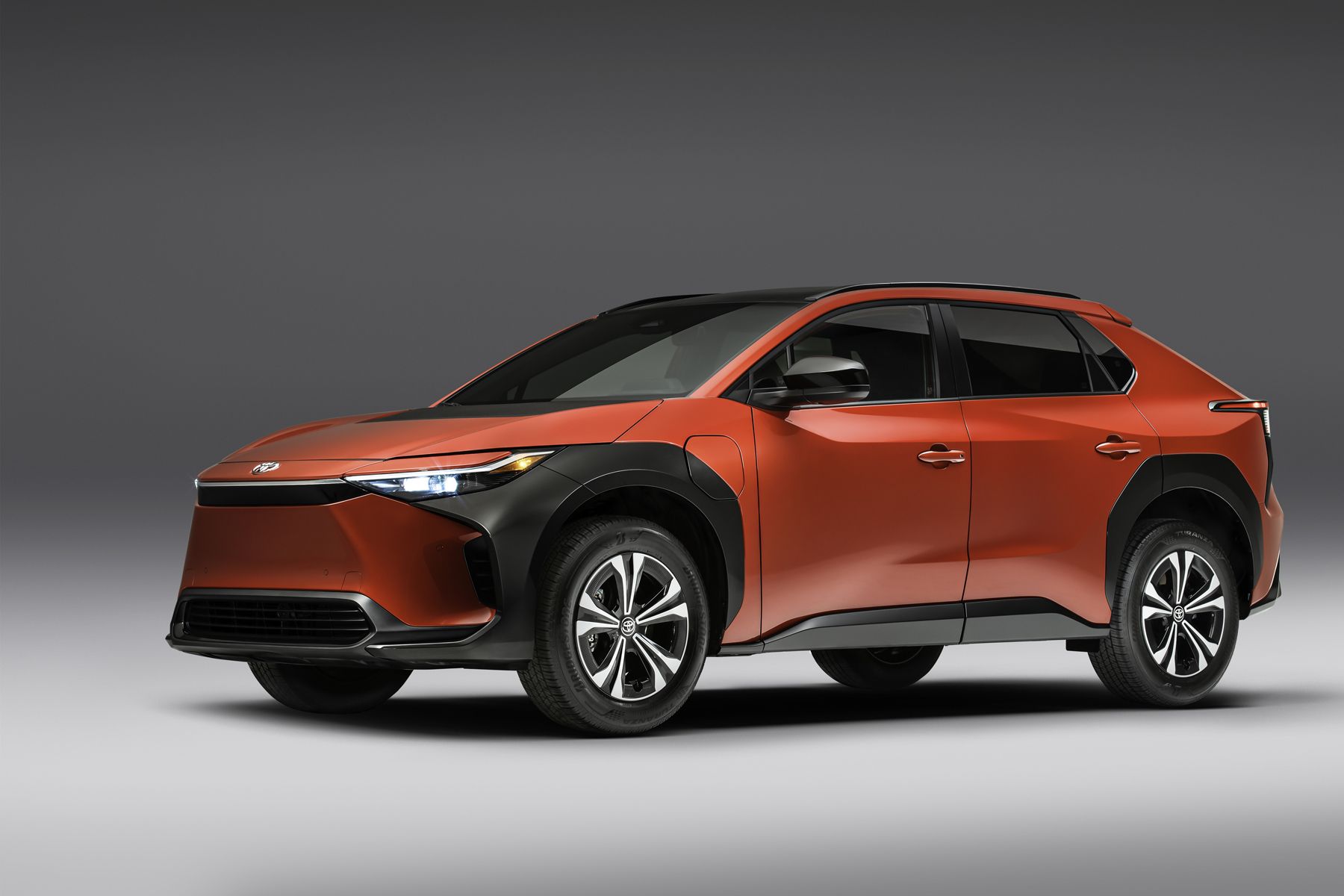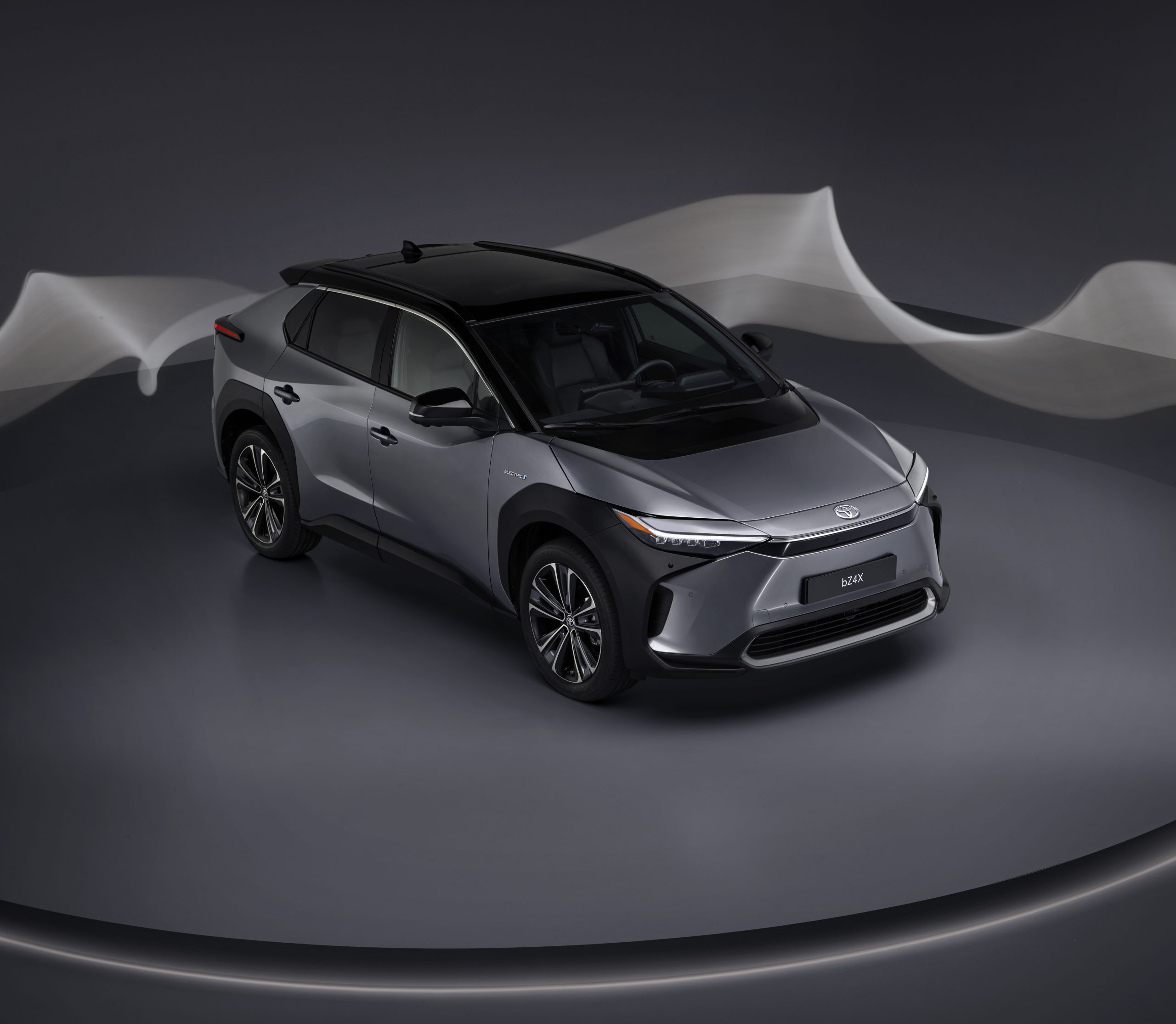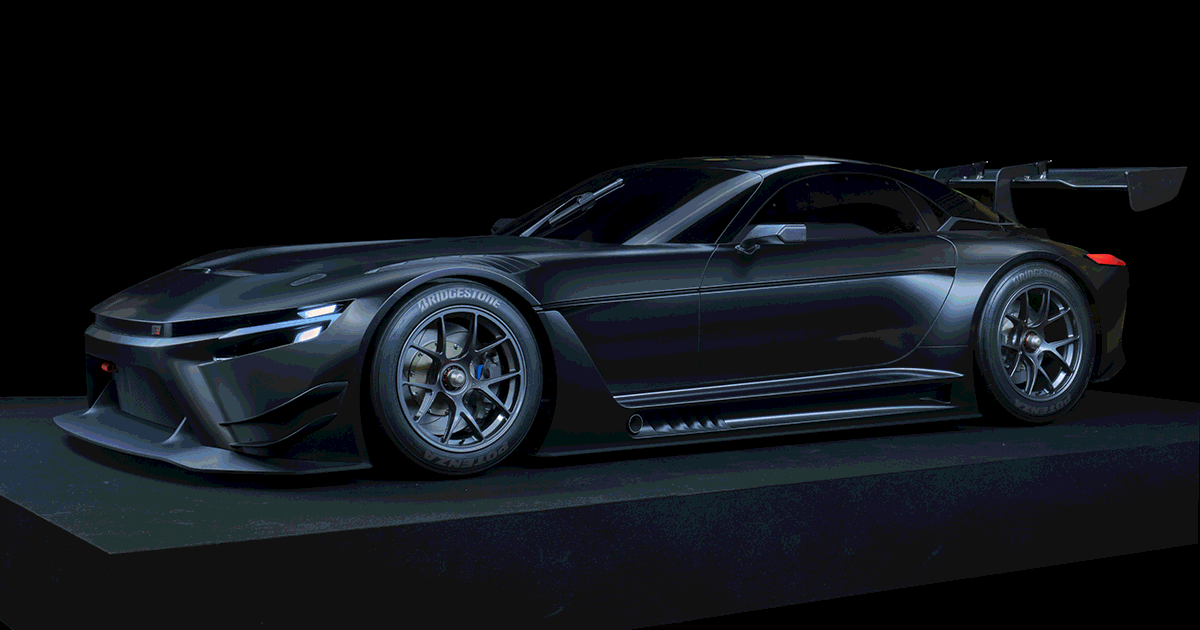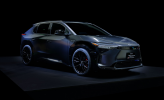in NA at least I doubt Toyota Marketing wants to have anyone utter Mirai and BZ4x in the same sentence. While it is tastefully designed, everything else of the Mirai has been terrible, as Toyota cant pay enough to future owners to take them off their lots.I see the BZ4X as the RAV4 of the EV world, no need for B.S. and gimmicks, and for those who are complaining that it's too slow and lack range look at the new Mirai, Toyota underrated its acceleration times amd range, who knows they might doing the same thing with the BZ4X, don't want to over-promise and under-deliver, this their 1st properly developed EV afterall, not some slapped together frankenstein to make certain groups of people happy.
You are using an out of date browser. It may not display this or other websites correctly.
You should upgrade or use an alternative browser.
You should upgrade or use an alternative browser.
Toyota BZ4X
- Thread starter shizhi
- Start date
Frunk matters if you are charging via AC or level 1 chargers, and yes, it shows who is really EV manufacturer and who is not.
250 miles is right where the competitors are such as ID4.
This is not a Tesla competitor, and after all it will be $20k less than Model Y.
250 miles is right where the competitors are such as ID4.
This is not a Tesla competitor, and after all it will be $20k less than Model Y.
Will1991
Moderator
- Messages
- 1,615
- Reactions
- 3,309
@spwolf , to be honest, I don’t think Tesla have any direct competition, those who look for a Tesla don’t find the same things anywhere else.
Those who buy BEV from other brands don’t look for the same things.
I had a TM3 on order after the test drive before covid, but I rented one for the weekend and I couldn’t keep it on order… I found the dash too low and it gave me a strange feeling and also for the rear passengers it’s too uncomfortable.
But as a electric powertrain and how well the fast charging network works it’s amazing.
Those who buy BEV from other brands don’t look for the same things.
I had a TM3 on order after the test drive before covid, but I rented one for the weekend and I couldn’t keep it on order… I found the dash too low and it gave me a strange feeling and also for the rear passengers it’s too uncomfortable.
But as a electric powertrain and how well the fast charging network works it’s amazing.
If the Mirai was kept a GS it would sell more then the Mirai lolIf the Mirai was a PHEV I'd buy one in a HEARTBEAT. There is zero hydrogen infrastructure here and I don't think it works in -35C weather...
I have been thinking of this and its interesting to see range figures for vehicles within in the Toyota Lineup
Rav 4 AWD= 420 miles
I cannot calculate the hybrid or the prime because I don't know if I should straight multiply the MPGe x the fuel tank size.
This vehicle and its competition are at the 250-270 range. While its certainly fine for urban areas, will it be fine for those living elsewhere who want to make the EV switch?
Rav 4 AWD= 420 miles
I cannot calculate the hybrid or the prime because I don't know if I should straight multiply the MPGe x the fuel tank size.
This vehicle and its competition are at the 250-270 range. While its certainly fine for urban areas, will it be fine for those living elsewhere who want to make the EV switch?
Last edited:
qtb007
Admirer
- Messages
- 537
- Reactions
- 816
350-450 mi range is the target in most ICE vehicles because your typical driver doesn't want to stop at the gas station really frequently. I literally had a friend say that she wants an BEV because she hates going to the gas station and hates getting oil changes. The other car in the household would take care of her long trips. Now that her kids are getting out of rear facing seats, I can see the minivan getting replaced with a 5 or 7 seat BEV.I have been thinking of this and its interesting to see range figures for vehicles within in the Toyota Lineup
Rav 4 AWD= 420 miles
I cannot calculate the hybrid or the prime because I don't if I should straight multiply the MPGe x the fuel tank size.
This vehicle and its competition are at the 250-270 range. While its certainly fine for urban areas, will it be fine for those living elsewhere who want to make the EV switch?
TBH, I'm pretty sure I could get by with 150 miles. My commute is 40 miles round trip. The cities we travel to are 25 miles East and 30 miles West. As long as we had a vehicle in the household that could do those roadtrips, a shorter range EV wouldn't be an issue. I've definitely been eyeing up the MINI SE as my commuter. Cheap, fun, and efficient would be awesome as a daily. I'd still have my 4Runner or my wife's Clubman S for roadtrips. I can't see owning 2 MINIs, though. haha
@spwolf , to be honest, I don’t think Tesla have any direct competition, those who look for a Tesla don’t find the same things anywhere else.
Those who buy BEV from other brands don’t look for the same things.
I had a TM3 on order after the test drive before covid, but I rented one for the weekend and I couldn’t keep it on order… I found the dash too low and it gave me a strange feeling and also for the rear passengers it’s too uncomfortable.
But as a electric powertrain and how well the fast charging network works it’s amazing.
it is not really who look for Tesla, but rather who look for EV or who had one and know what they are looking at. Rivian also has a lot of EV features that traditional manufacturers do not have. These new guys are happy to look outside the box and they are building just EVs, so they have nicer EV-only features.
For instance that frunk - who cares, you will have cables at the back? Well, for many, many reasons, that is not really great and having frunk where you store the 3 sets of cables is reeeeaaaallly wonderful. I checked out videos of BZ4X and under the rear trunk there is only tiny bit of space left, not enough for a lot of cables but also even if you had them there, they had very deep trunk bottom cover which you cant raise if you have anything in your trunk. So you will place them in the actual trunk? That would be a huge mess for me.

Toyota Says We Can Have Cheaper Electric Cars Or Longer Range, But Not Both - Jalopnik
Toyota is taking a different approach than other carmakers as it transitions to fully-electric cars by focusing on low price over high range. In an interview with Green Car Reports, Toyota said the key to the electric transition is making EVs affordable, rather than making EVs with longer ranges.
The bottom line is, over time we view EV range similar to horsepower,” Ericksen said, comparing it to how almost any customer really wanted 400 horsepower but, at an affordability standpoint, might settle for 120 hp. “People who are affluent and can afford a really expensive vehicle can afford a lot of horsepower.
That is just so right, so obvious so logic, so Toyota. It also is a "FU" to Tesla/BEV advocates that use double standards:
Toyota: "BEVs are not viable yet, range is too short".
Tesla/BEV advocates: "Most do not need more range."
Toyota: "Here is our car. Range is enough. If you want more range, you can pay more."
Telsa/BEV:
Again, just so right, let us do the HP/range analogy:
ICEV:
low price > low power > low consumption > few refueling stops
high price > high power > high consumption > frequent refueling stops
luxury = power
cost of luxury: refueling time
BEV:
low price > small battery > low power and low range > frequent recharging stops
high price big battery > high power and high range > fewer recharging stops
luxury = power and range
cost of luxury: none
"Luxury" BEVs will have no operational downsides compared to ICEVs, so on one hand there can be more demand for "luxury" BEVs, on the other hand carmakers can charge even higher prices.
Question: Will the market in future be split in three categories? Budget, Tesla and Luxury?
Toyota: "BEVs are not viable yet, range is too short".
Tesla/BEV advocates: "Most do not need more range."
Toyota: "Here is our car. Range is enough. If you want more range, you can pay more."
Telsa/BEV:
Again, just so right, let us do the HP/range analogy:
ICEV:
low price > low power > low consumption > few refueling stops
high price > high power > high consumption > frequent refueling stops
luxury = power
cost of luxury: refueling time
BEV:
low price > small battery > low power and low range > frequent recharging stops
high price big battery > high power and high range > fewer recharging stops
luxury = power and range
cost of luxury: none
"Luxury" BEVs will have no operational downsides compared to ICEVs, so on one hand there can be more demand for "luxury" BEVs, on the other hand carmakers can charge even higher prices.
Question: Will the market in future be split in three categories? Budget, Tesla and Luxury?
Why the obsession with Tesla? No Toyota models compete with Tesla models. Tesla buyers are early adopters, people who are willing to buy and use a new-technology product as soon as it is available; Toyota buyers are not early adopters. But the market for late-adopters is larger than early-adopters.
The competition for the Toyota bZ4X will be the VW ID.3 and ID.4, and compact and mid-size (2-row) crossover utility vehicles (the best-selling market segment). Specific models include Ford Escape, Honda CR-V, Toyota's own RAV4 and Harrier/Venza, and especially the hybrid and plug-in hybrid versions of these crossovers.
To successfully compete in the highly-competitive compact crossover segment, the bZ4X will have to be priced competitively against the Escape, CR-V, and RAV4 and Harrier/Venza, taking into consideration any incentives. I believe that if the bZ4X is priced at about Cdn$35,000 (after incentives), which is about $2,000 more than a base RAV4 Hybrid and $10,000 less than a base RAV4 Prime, it should sell.
The following news item from a Canadian source suggests that the bZ4X's modest specifications will keep the price below the limit for Canadian EV incentive eligibility.

 driving.ca
driving.ca
The maximum incentive in Canada is $5,000 (not including any separate, additional provincial incentives); the maximum retail price of an EV or HEV to be eligible is Cdn$45,000.
Searching the list of eligible EVs shows that Audi A3 Sportback e-tron and a number of BMW models are eligible, but no Mercedes-Benz, Lexus or Tesla models. The Prius Prime and RAV4 Prime are eligible. So even the German luxury brands strategically price their EVs and HEVs to be able to take advantage of the Canadian EV incentive. Toyota should take advantage with the bZ4X, and Lexus should take advantage of this incentive also.
 tc.canada.ca
tc.canada.ca
The competition for the Toyota bZ4X will be the VW ID.3 and ID.4, and compact and mid-size (2-row) crossover utility vehicles (the best-selling market segment). Specific models include Ford Escape, Honda CR-V, Toyota's own RAV4 and Harrier/Venza, and especially the hybrid and plug-in hybrid versions of these crossovers.
To successfully compete in the highly-competitive compact crossover segment, the bZ4X will have to be priced competitively against the Escape, CR-V, and RAV4 and Harrier/Venza, taking into consideration any incentives. I believe that if the bZ4X is priced at about Cdn$35,000 (after incentives), which is about $2,000 more than a base RAV4 Hybrid and $10,000 less than a base RAV4 Prime, it should sell.
The following news item from a Canadian source suggests that the bZ4X's modest specifications will keep the price below the limit for Canadian EV incentive eligibility.

First Look: 2022 Toyota BZ4X
The Japanese giant's fully electric take on its RAV4 has us asking one question: what's the price?
The maximum incentive in Canada is $5,000 (not including any separate, additional provincial incentives); the maximum retail price of an EV or HEV to be eligible is Cdn$45,000.
Searching the list of eligible EVs shows that Audi A3 Sportback e-tron and a number of BMW models are eligible, but no Mercedes-Benz, Lexus or Tesla models. The Prius Prime and RAV4 Prime are eligible. So even the German luxury brands strategically price their EVs and HEVs to be able to take advantage of the Canadian EV incentive. Toyota should take advantage with the bZ4X, and Lexus should take advantage of this incentive also.
List of eligible vehicles under the iZEV Program
List of eligible vehicles under the iZEV Program
Well that's exactly their intended competition. And they match the range of ID.4 with a 1/7 smaller battery, that's where they can get a price advantage.and problem is always competition... nobody is alone anymore.
If they are just comparing themselves with ID4, that works.
Whatever you want to say about the ID series, but it is the most soundly engineered and fairly priced mass-market EV available.
Yes, on the budget side the battery chemistry will be dominated by low density low cost solutions like LFP and Na-ion. CATL re-invested in LFP and heavily research on Na-ion so they clearly know something.Question: Will the market in future be split in three categories? Budget, Tesla and Luxury?
High density chemistry like NCM or future semi-solid state/full-solid state will be reserved for higher end models. Our current approach of all-NCM is absolutely unsustainable. Imagine every mass market ICEV has a turbocharged V8 engine only with different displacement, that's what today's BEV market is like.
Last edited:

Toyota Announces Prices, Model Range and Specification Highlights for the All-new, All-electric bZ4X - Toyota Media Site
Toyota Announces Prices, Model Range and Specification Highlights for the All-new, All-electric bZ4X
Starting price:
| bZ4X Pure | FWD | £41,950 |
maiaramdan
Expert
- Messages
- 1,836
- Reactions
- 1,423
I still afraid that will shift TMC from the real future long-term prove H2 ICE

TOYOTA GAZOO Racing Unveils GR GT3 Concept and GRMN Yaris as Embodiments of Making Ever-better Motorsports-bred Cars | Corporate | Global Newsroom | Toyota Motor Corporation Official Global Website
TOYOTA GAZOO Racing (TGR) and Lexus are exhibiting the following vehicles and parts at Tokyo Auto Salon 2022 at Makuhari Messe (Chiba City) from today to January 16.
bZ4X GR Sport Concept

-
This site uses cookies to help personalise content, tailor your experience and to keep you logged in if you register.
By continuing to use this site, you are consenting to our use of cookies.
